Travelers Are Abandoning Budget Airlines for United—Here’s Why
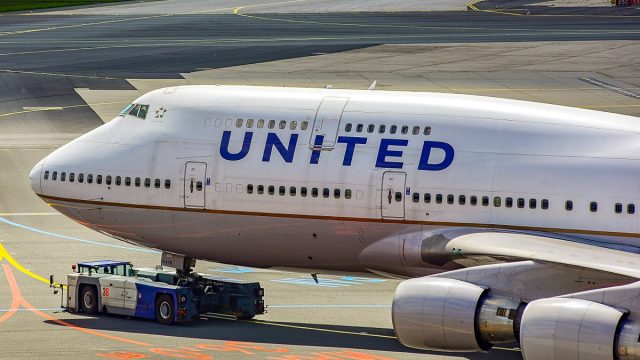
There’s no two ways about it: Booking flights is expensive. Setting flight alerts can help find more affordable tickets, but even so, you often end up shelling out more than you’d like to. That’s why so many people turn to budget airlines, which offer considerably cheaper base fares without the bells and whistles. But now, customers are changing their tune and opting to book with more standard carriers, like United Airlines. Read on to find out why travelers are abandoning budget airlines and making the switch.
RELATED: Travelers Are Boycotting Southwest Over New Boarding Change.
Budget airlines are struggling.
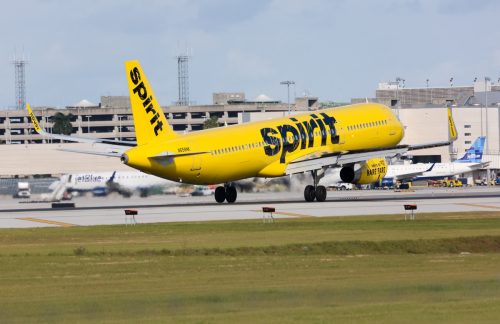
Carriers like Spirit Airlines, Frontier Airlines, and Allegiant Airlines consistently offer low fares as part of their business model, making them a go-to for bargain hunters. These base fares offer very little in terms of “extras,” typically requiring you to pay for bags, seats, and other amenities a la carte.
But while they make money off of the extra fees, these carriers don’t have other money-makers, like premium cabins and airport lounges—which customers are willing to pay for.
Because of this shortfall and slower demand following the post-pandemic travel boom, low-cost carriers are being hit the hardest of all the airlines, The Points Guy (TPG) reported. In addition, as with the other carriers, this is compounded by high fuel and labor costs.
Speaking to these pain points, in September, both Spirit and Frontier informed investors that they’re predicting significant losses for the third quarter, according to TPG.
RELATED: United Is Finally Changing Its Boarding Process, Starting Oct. 26.
United offers more seating options.
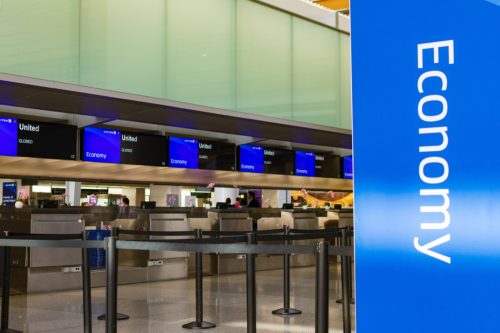
While budget carriers are struggling, United Airlines is having the opposite experience, according to executives.
“United’s diverse revenue streams have also allowed us to handle variations in demand and produce solid, absolute, and even better relative results,” United CEO Scott Kirby said during an Oct. 18 earnings call.
According to the travel site Live and Let’s Fly, these “diversified revenue streams” include the airline’s offering of more seating choices—giving customers the choice of business class or more affordable seating options. This helps United appeal to a wider customer base, including those who want to fly in style, and those who simply want to get from point A to point B.
RELATED: Major Airlines, Including JetBlue and American, Are Changing Seating.
Basic economy is a real draw.
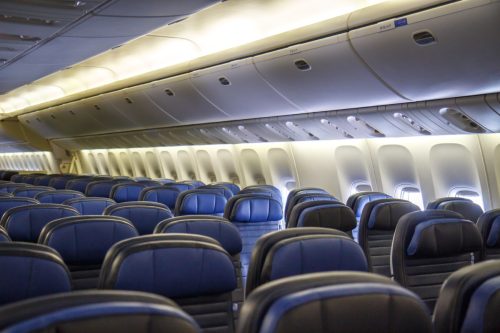
With its lowest fare, basic economy, United is able to offer similar pricing to ultra-low-cost-carriers. Sweetening the deal, there’s generally more included with your base fare when booking with United, making passengers more inclined to skip a “deal” with a budget carrier.
“[Basic economy] has made United more competitive versus ultra-low-cost competitors,” Andrew Nocella, United’s chief commercial officer, said of the no-frills option.
Data highlights this shift as well. In a press release outlining third-quarter results, the airline noted that revenue coming from basic economy was up 50 percent when compared with the same quarter last year.
On the call, Nocella also noted that 12 percent of United’s domestic passengers fly in basic economy. With the arrival of larger aircraft that can accommodate more basic economy seating, United also “expects to be even more competitive in this segment of the market in the future,” he said.
“[Basic economy] is a product we’ve talked about a lot, provides choice for our customers, on the low end,” Nocella added. “We have lots of products on the high end as well. It gives us the diversity we need. And I think it’s really allowing us to compete very effectively with all of our competitors, but particularly our ultra-low-cost competitors.”
Kirby said budget airlines are moving in the “other direction.”
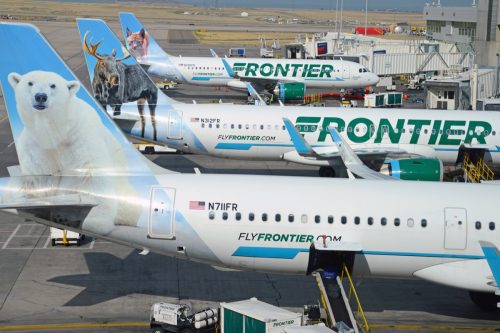
When asked about why basic economy has become such a key part of United’s strategy—when it hasn’t always been a priority in the past—Kirby said that it “took us a while to work out.”
He also noted that competitors were moving in the “other direction,” seemingly referring to Frontier, which has become more stringent about carry-ons versus personal items, and is cracking down on those trying to dodge the carry-on fee.
“I mean charging people $99 at the gate and [paying] your employees a commission to take their purses away [crosses] the line,” Kirby said. “And so while they’ve gone in one direction, we’ve gone the other with an improved product.”
RELATED: For more up-to-date information, sign up for our daily newsletter.